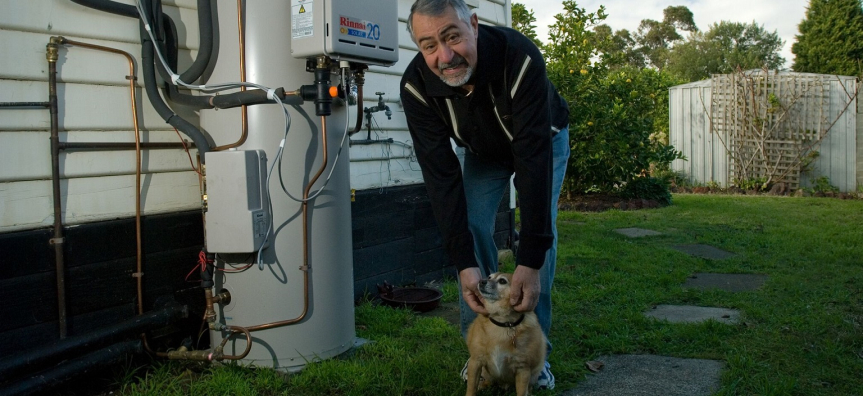
Water Wise
Shrink the power bill in hot water
Around 21% of a households energy use can come from heating water. Using less hot water is a simple and easy way to reduce energy costs. Installing WELS rated water efficient showerheads and taps can make a big difference to your hot water costs. The less you use the less you pay.
Plan ahead
Check the age of your hot water system and make a plan for an energy efficient and cheap to run hot water system before yours gives up.
Shorter showers
A shorter shower challenge is a fun way to teach children the importance of saving water and energy. To make taking shorter showers fun, use a shower timer and challenge the family to a shorter shower challenge. This can reduce your energy costs as less water will need to be heated. It is an easy thing to do but will have a big impact on your bill.
The Goldilocks temperature, not too hot, not too cold
The Goldilocks – ‘just right’ temperature for a storage hot water system is 60°C. Any lower may allow harmful bacteria to flourish; higher will use energy unnecessarily. Continuous hot water systems should be set at no higher than 50°C. This will lower your running costs and extend your system's life.
One cup or two?
Don’t boil more water than you need, boiling water uses a lot of energy and filling up a kettle for one cup can be costly. Use a mug to fill the kettle, that way you always have the right amount and you can enjoy that cup of tea much sooner.
Install a heat pump hot water system
Heat pump hot water systems run on electricity but are around three times more efficient than a conventional electric water heater. They sit on the ground so don't require roof space.
They make a low humming sound similar to an air conditioner which should be taken into account when deciding on their location.
- Use much less electricity than conventional electric water heaters
- Ground-mounted so no need for roof space or roof strengthening
- Installation costs are generally cheaper compared to a solar water heater
- Can operate in most climates but are most efficient in hot and humid conditions
